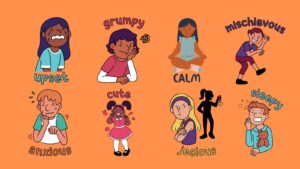Implementing the Lexical Approach
Nowadays nobody denies the importance of teaching ready-made phrases or chunks. They form the basis of the lexical approach. There are also other words for chunks – formulaic language, pre-fabricated language, multi-word units or holophrases.
All these terms simply mean two or more words that frequently occur together. Learners can reproduce them automatically and improve the fluency and naturalness of their speech. For example, I ran out of money is much more natural than My money finished.
Interpretations of chunks and their role in ELT vary from book to book. Paul Davis and Hanna Kryszewska even consider one sentence a chunk. Michael Lewis dismisses the idea of studying traditional grammar altogether. The terms collocations and chunks, collocations and word partnerships are often interchangeable. Despite somewhat conflicting opinions, some ideas and observations generously contribute to teaching vocabulary at different levels. I use several principles and activities to work with elementary and intermediate students.
First of all, the classification suggested by Scott Thornbury helps me ‘reconcile’ vocabulary and grammar.
My Favourite Classification of Chunks
collocations – highly popular, go by train,
phrasal verbs – come up with an idea,
idioms – spill the beans,
sentence frames – Have you ever….?, Would you like to…? I have never ….
social formulae – You’re welcome, Never mind, You have your point.
discourse markers – In a nutshell, By and large, As for…
In General English coursebooks there is enough material about the chunks. Unfortunately, this approach is not systematic. There is no routine like doing grammar exercises in a Murphy grammar. I try to establish some sort of system of practicing collocations and some grammar patterns.
Collocations for Elementary Learners
- ‘A good rule is never to teach a word without giving a few common collocations’. Elementary students need to increase the number of individual words and to learn a smaller number of collocations. When it comes to the verb, this principle more or less works. The books I use regularly – English File, Face2Face, Speakout – have vocabulary banks where there are enough verbs phrases.
- These vocabulary banks tend to give nouns as individual words. In this situation I use the so-called key word approach. It is applied when the focus is shifted to the noun. So I make collocation boxes suggested by Michael Lewis. I do not ask elementary and pre-intermediate students to select them on their own. It can take them a lot of time to translate the chunks. This collocations box is for ‘meeting’ from Face2Face, elementary page 154. Such grids help reduce processing difficulty. Students use them as prompts and make up their own sentences.
| Verb | Adjective | meeting |
| have | a regular | |
| cancel | a formal |
It is possible to make such collocations boxes for verbs too. But students are overloaded with common de-lexicalised verbs – get, have, go, do and make. They frequently occur in the book and look a little intimidating with such a variety of meanings.
- I encourage the use of some grammatical structures in sentence frames or grammar patterns. For example, the present perfect for life experience is easily acquired in the patterns Have you ever…?, I have never/always…. The frames If I + V2/Ved, I would + V, If I + V, I will + V, help to practise conditional sentences without spending much time on doing written exercises.
Collocations for Intermediate Learners
Intermediate students need more words in chunks and to increase the number of collocations of familiar words. So I continue using collocation boxes and sentence frames for spaced repetition and practising grammar. New elements are as follows:
- I encourage using English-English or Collocations Dictionaries to record useful phrases. There are a lot of collocations dictionaries. For me the best one is a short one because it is easier to resist the temptation of writing down everything from the entry. Short dictionaries are Macmillan Collocations Dictionary, Longman Collocations Dictionary and Thesaurus and LTP Dictionaries of Selected Collocations. There is also an online collocations dictionary – http://www.ozdic.com/.
- At this level students can deal with abstract words more effectively than elementary students. Vocabulary banks may have a lot of abstract words for which we can find more chunks. For example, Face2Face Intermediate offers collocations on Work. The words responsibility and problem have only one chunk – have a lot of responsibility, sort out people’s problems. The collocation boxes for problem can look like that.
| cause | serious | problem(s) | arise (arose/ arisen) |
| create | minor | come (came, come) up | |
| pose | complex | confront somebody | |
| tackle / sort out | common | lie in something | |
| avoid | urgent | remain/persist | |
| identify | long-term | sxist |
- We can also practise words with similar meanings by means of chunks – chance and opportunity, expenditure and expenses. As a result, there is no need to go into a lengthy explanation.
There are other practical ideas suggested by the lexical approach. If you use some of them, please write in the comments.
Scott Thornbury. An A-Z of ELT.
Paul Davis and Hanna Kryszewska. The Company Words Keep.
Michael Lewis. The Lexical approach. The State of ELT and a Way Forward.
Teaching Collocation. Further Developments in the Lexical Approach.





4 Responses
Guy Cihi
Very nice. I will post a link to this article on the WordEngine page. WordEngine has high-frequency collocates; example sentences, POS indications, and of course proper pronunciations for all of the 13,385 base words it teaches. GC
25/01/2016
Ekaterina Zubkova
Thank you, Guy!
25/01/2016
Aline Hilbe
Hi! I really enjoyed your article; the way you classify word-formations is ideal to help students see how English works more clearly and also incorporate them just the way they are, mainly in Adult beginners' level in which most students refuse to see chunks as a whole thing since they insist on analysing every single word meaning. Thanks for posting this article and providing us with so useful links! Aliné from Argentina.
06/02/2016
Ekaterina Zubkova
Thank you! More articles are in the pipeline :)
06/02/2016